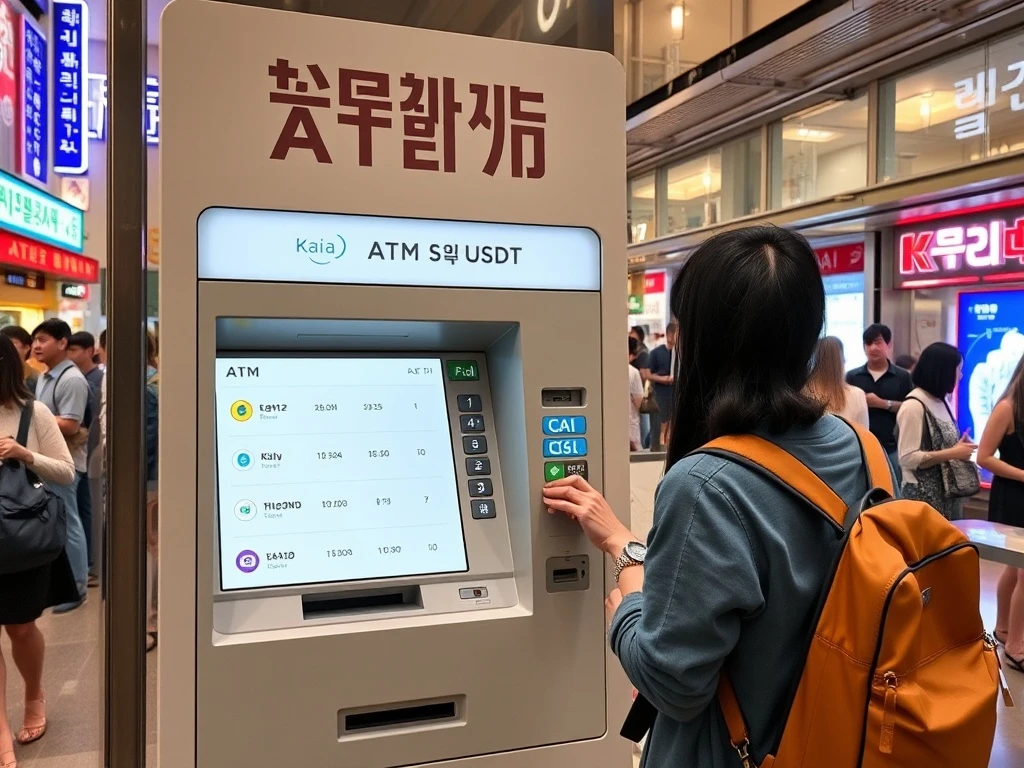South Korea Revolutionizes Tourism with Stablecoin ATMs for Foreign Visitors via Kaia USDT

South Korea is taking a bold step in cryptocurrency adoption by launching stablecoin ATMs for foreign tourists. These innovative machines allow visitors to convert Kaia-issued USDT into cash or load funds onto local transit cards, bridging the gap between crypto and everyday spending.
How South Korea’s Stablecoin ATMs Work
The new digital ATMs (DTMs) are a collaboration between blockchain firm DaWinKS and the Kaia DLT Foundation. Here’s what makes them special:
- Convert Kaia USDT to 85 fiat currencies
- Load funds onto local transit cards
- Available in 7 key tourist locations
- Biometric and passport-based KYC verification
Why This Matters for Crypto Adoption
This initiative represents a significant milestone in real-world cryptocurrency applications:
| Feature | Impact |
|---|---|
| Regulatory sandbox | Allows testing within legal boundaries |
| Foreign tourist focus | Targets crypto-savvy visitors while navigating local regulations |
| Future expansion | Potential for debit cards, vouchers, and medical payments |
Challenges and Future of Crypto-to-Cash Services
While promising, the project faces hurdles:
- KYC compliance remains complex for offline Web3 services
- Current restrictions exclude domestic users
- South Korea’s fragmented stablecoin regulations
Frequently Asked Questions
Where are these stablecoin ATMs located?
The DTMs are currently installed in seven locations including NSeoul Tower, Myeongdong Money Club, and Lotte Mart branches.
Can South Korean residents use these ATMs?
No, the service is currently limited to foreign passport holders as part of the regulatory sandbox framework.
What cryptocurrencies are supported?
Currently Kaia USDT, with potential future expansion to include KAIA, Bitcoin, and Ethereum.
How does the conversion process work?
Users authenticate via biometric and passport verification, then can withdraw cash or obtain a prepaid transit card. Remaining funds can be converted back to USD before departure.









